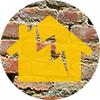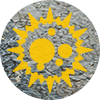Home damage and repair is never a cost we want to incur, however sometimes these costs cannot be avoided. And if you think you are covered under a standard homeowners insurance policy, you might want to think again. Here are four things that are surprisingly not covered by most standard homeowners insurance policies.
Earthquakes
 Most basic homeowners insurance policies cover fire, wind, hail, theft, and lightning damages. However, they do not cover damages associated with earthquakes. And even if you don’t live on the West Coast of the U.S. where earthquakes are more prevalent, you still could be in need of earthquake coverage. The USGS seismic hazard map indicates where there is the highest hazard for earthquakes to help identify if you are at risk.
Most basic homeowners insurance policies cover fire, wind, hail, theft, and lightning damages. However, they do not cover damages associated with earthquakes. And even if you don’t live on the West Coast of the U.S. where earthquakes are more prevalent, you still could be in need of earthquake coverage. The USGS seismic hazard map indicates where there is the highest hazard for earthquakes to help identify if you are at risk.
Flooding
 Although your homeowners insurance might cover water damage, it does not include flood damage. Flood damage cleanup and repair can be extremely costly. And if you live close to a coastal area or a flood zone, you should consider adding flood insurance to your policy. The Federal Emergency Management Agency (FEMA) has provided homeowners with the tools and resources needed to understand flood insurance policies and how much coverage is needed.
Although your homeowners insurance might cover water damage, it does not include flood damage. Flood damage cleanup and repair can be extremely costly. And if you live close to a coastal area or a flood zone, you should consider adding flood insurance to your policy. The Federal Emergency Management Agency (FEMA) has provided homeowners with the tools and resources needed to understand flood insurance policies and how much coverage is needed.
Sewer Backup
 As mentioned, water damage is covered by homeowners insurance. However, sewer backups are not. Aged sewer lines are the main cause of sewer backups and clogged sewers can damage your interior furniture, walls, and floors, making your home uninhabitable. The cost of damages can be extremely high and so detrimental that you must leave your home until it is fully restored.
As mentioned, water damage is covered by homeowners insurance. However, sewer backups are not. Aged sewer lines are the main cause of sewer backups and clogged sewers can damage your interior furniture, walls, and floors, making your home uninhabitable. The cost of damages can be extremely high and so detrimental that you must leave your home until it is fully restored.
Mold
 If you’re in need of both flood and sewer coverage, you will most likely need mold protection too. And mold damage is not covered by the most standard homeowners’ insurance policy. Mold and mildew can go unnoticed for weeks or longer, causing ample amounts of damage to your home. A leaky pipe could cause mold to grow and leave you with an entire kitchen to replace. You should know your home’s moisture level and if you’re at serious risk of mold damage. If so, you’ll want to seek additional coverage.
If you’re in need of both flood and sewer coverage, you will most likely need mold protection too. And mold damage is not covered by the most standard homeowners’ insurance policy. Mold and mildew can go unnoticed for weeks or longer, causing ample amounts of damage to your home. A leaky pipe could cause mold to grow and leave you with an entire kitchen to replace. You should know your home’s moisture level and if you’re at serious risk of mold damage. If so, you’ll want to seek additional coverage.
Make sure you know what damages are and are not covered in your home insurance policy. The last thing you want is to think something is covered when it actually is not. For more information on insurance coverage, click here.